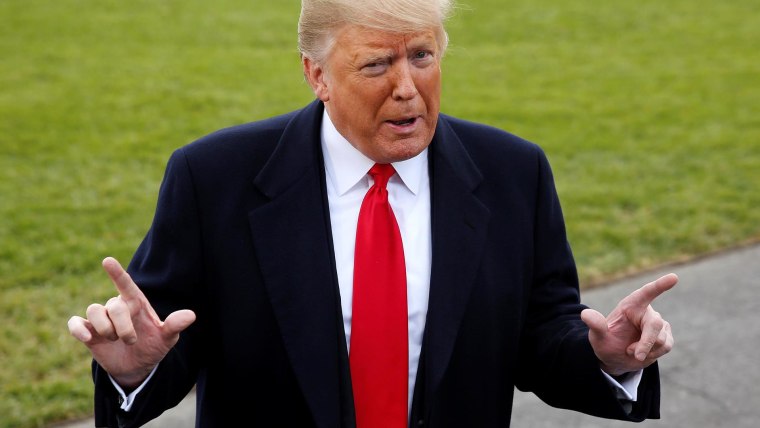can the president change the constitution with an executive order
President Donald Trump attacked Firm Speaker Paul Ryan, R-Wis., on Midweek for his opposition to a presidential executive order ending birthright citizenship for the children of parents non legally in the United states.
"Paul Ryan should exist focusing on holding the Majority rather than giving his opinions on Birthright Citizenship, something he knows nix nigh!" Trump tweeted.
Trump doesn't seem to know a whole lot more than most executive orders and how they relate to constitutional rights.

First, it appears likely that birthright citizenship is a constitutional right. There are opponents who claim that it is non, or at least that it's an open question. However, it'due south hard to argue with what appears to be clear linguistic communication of the 14th Amendment Citizenship Clause, the history of reliance on this "right" and Supreme Court cases which announced to endorse "jus soli" — constitutionally granted citizenship by virtue of nascence on American soil.
If birthright citizenship for children of parents not legally on American soil is enshrined in the 14th Amendment, it cannot be extricated past means of an executive guild.
Article II, Section I of the Constitution provides that "(t)he executive power shall be vested in a President of the United States of America." And that's mostly it, as far as the Constitution goes. That hazy language establishes the president as the head of the executive branch, and renders him the boss of the heads of government agencies. It'due south as well the source of ability for the executive club or "EO."
While nebulous at times, there have been more often than not two kinds of EOs since President George Washington's fourth dimension: "documents with written instructions … to executive branch officials" and "written statements that communicate a presidential determination…"
The president'south power includes "general authoritative control of those executing the laws," within the Executive Branch. Seeing that the laws are faithfully executed vests in the president the power to provide guidance and supervision to his subordinates. There are recognized limits, however: "The President's power (under Article Ii, § 3) to see that the laws are faithfully executed refutes the idea that he is to be a lawmaker." The "executive club" must ultimately be subordinate to statutes enacted past Congress.
The federal judiciary is as well empowered to review the constitutionality of EOs. Indeed, it is the recognized duty of federal courts to preserve the Constitution'due south safeguards. In the past, the courts have invalidated executive orders that exceeded presidential power.
In 1952, for instance, the Supreme Court held that President Harry Truman's executive order that authorized his secretary of commerce to accept over the country's steel mills was unconstitutional because the president acted without ramble or statutory authority.
And in 1996, the D.C. Court of Appeals concluded that an EO issued by President Bill Clinton was unlawful. Clinton'south EO prevented employers performing under federal contracts from hiring strike breakers. The D.C. Circuit concluded this EO interfered with employers' right to hire their chosen workers.
If the president cannot legislate by EO, and if he cannot overturn congressional legislation by EO, so it follows that he surely cannot overturn an established ramble correct, fifty-fifty if he really, actually disagrees that such a correct exists.
Fifty-fifty if the White House has a good faith belief that birthright citizenship is based on the public'south, and the Supreme Court'due south, misinterpretation of the constitution, information technology's pretty clear the rest of the state has operated for hundreds of years in reliance on birthright citizenship.
The right predates the Usa itself, as information technology derives from the English language common law. At a minimum, an EO removing birthright citizenship would crave demonstrating to the reviewing court (in the instance that would be filed 30 seconds after the EO was issued) that the Citizenship Clause of the Constitution has been misunderstood for centuries, and is therefore inferior to an EO.
And then the court would accept to consider whether executive orders — which are beneath both federal statutes and the constitution on the legal hierarchy — could deign to remove a correct considered ramble for and so long. It's just non probable, though there are opponents of birthright citizenship who say it'due south possible.
Trump is convinced that he has the ability to remove birthright citizenship by EO; he may result such an social club because of this firmly held belief.
However, "the separation of powers does non depend on the views of individual Presidents…" It depends on what the federal courts ultimately say nigh a particular presidential act, and whether it exceeds his authority. That is the constitutionally designed safeguard against the historically uncertain power of the executive order.
Danny Cevallos is an MSNBC legal analyst. Follow @CevallosLaw on Twitter.
Source: https://www.nbcnews.com/politics/donald-trump/no-mr-president-executive-order-can-t-change-constitution-here-n929806
Posted by: blackburncounce.blogspot.com


0 Response to "can the president change the constitution with an executive order"
Post a Comment